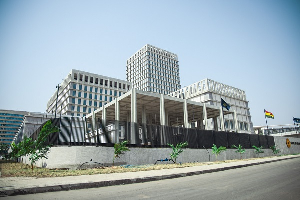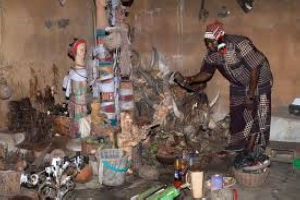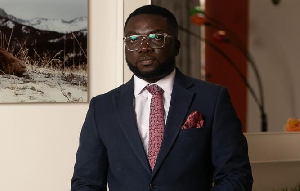The Community Court of Justice of the Economic Community of West African States (ECOWAS) has ordered Ghana to release information on the death of Peter Mensah, who was killed in The Gambia, to his son within four months.
This ruling followed a decision by a three-member panel of the ECOWAS Court, presided over by Justice Edward Amoako Asante, which found that Ghana violated the son of the deceased’s right to information by refusing to release the UN/ECOWAS Committee Report to the applicant.
Mr. Isaac Mensah, the first applicant, sued the Republic of Ghana as the surviving son of Mr. Peter Mensah, a Ghanaian national and Community citizen who allegedly disappeared after his arrest by state agents in The Gambia in July 2005.
The first applicant in the suit represented 23 other individuals who claimed to be family members of Mr. Peter Mensah; however, the court struck out the other applicants for lack of locus standi.
The panel, which also comprised Justice Gberi-Be Ouattara and Justice Ricardo C.M. Gonçalves, on July 12, 2024, found that the respondent (Ghana) violated the applicant’s right to information by failing or refusing to release the UN/ECOWAS Committee Report to the applicant.
Consequently, the ECOWAS Court ordered that the respondent (Ghana) take steps to release the report to the applicant no later than four months from the date of service of this judgment.
The court further ordered that the 2009 UN/ECOWAS Committee Report delivered to Ghana be given to the applicant.
The panel also stated that the coroner’s/pathologist’s report on the bodies returned to Ghana in 2009, a report on the disbursement of the money paid by The Gambia to the families, a copy of the videotape of the burial ceremony of the six bodies returned to Ghana, and a copy of the picture taken when the money was handed to the Mensah family should be released to the applicant.
The second applicant, a registered trustee of the African Network Against Extrajudicial Killings and Enforced Disappearances (ANKED), a human rights NGO based in The Gambia, was struck out as a party to the case for lack of standing.
The respondent, the Republic of Ghana, is an ECOWAS member state and a party to the African Charter on Human and Peoples’ Rights 1981 (African Charter) and the International Covenant on Civil and Political Rights 1966 (ICCPR), on which the applicants rely in the case.
The panel also decided that all other reliefs sought by the parties which were not granted in whole or in part are dismissed, urging that the parties bear their own costs.
Applicants’ Case
According to the applicants, Mr. Peter Mensah, the father of the first applicant, was a citizen of Ghana who lived in Akomadan (in the Ashanti Region) and worked as a cocoa farmer.
In March 2005, when the first applicant was only 12 years old, Mr. Peter Mensah embarked on a journey to Europe through Senegal. However, his wife, the first applicant’s mother, who had been communicating with Mr. Mensah, eventually lost contact with him.
In July 2005, the family heard news of the arrest and killing of some West African migrants (mainly Ghanaian nationals) in The Gambia, with the only survivor being one Martin Kyere, a Ghanaian who managed to escape.
The applicants say that later in 2005, when Mr. Martin Kyere returned to Ghana, he worked with the Commonwealth Human Rights Initiative, an NGO, to locate the families of the Ghanaian migrants who were presumably killed.
Mr. Martin Kyere confirmed that Mr. Peter Mensah was among the West African migrants who were arrested in The Gambia when they were trying to get on a ship to Europe.
However, he had no knowledge of his fate as the detained migrants were subsequently separated into two groups, with Peter Mensah falling into a different group from his.
After an unsuccessful fact-finding mission by Ghanaian authorities to The Gambia in August 2005, The Gambia later allowed an investigative team from Ghana into The Gambia in March 2006.
However, the findings of the investigations are still unknown as neither Ghana nor The Gambia furnished the first applicant with any information about the said investigation.
Subsequently, in August 2008, a joint UN/ECOWAS Fact-Finding Team was established in collaboration with Ghana and The Gambia to investigate the incident.
According to the applicants, the report of the investigation was not shared with the public. However, the investigations established that a group of migrants had indeed left Senegal on July 22, 2005, for Europe but were dropped off the coast of The Gambia and had since not been seen or heard from.
The report also indicated that rogue elements of The Gambian security forces were responsible for the death of some of the migrants and the disappearance of others but found no evidence of direct government involvement.
Based on these findings, Ghana and The Gambia, without any consultations with the families of the victims, signed a Memorandum of Understanding (MOU) on July 2, 2009.
Under the MOU, the government of The Gambia, without acknowledging responsibility, agreed to make a financial payment to the families of six Ghanaians found dead in The Gambia in accordance with African traditional values. Both parties also agreed to investigate, arrest, and prosecute the perpetrators.
In September 2009, it was reported that the remains of about six to eight of the Ghanaians who were killed in The Gambia were returned to Ghana. No DNA samples were collected from the first applicant, Mr. Isaac Mensah, or any of his family members to enable identification of the possible remains of Mr. Peter Mensah among those returned. Instead, the government of Ghana proceeded to conduct a mass burial.
In December 2010, the government paid 10,000 cedis (approximately 6,800 US dollars at 2009 exchange rates) to 27 families, including the Mensah family, out of the 500,000 US dollars paid by the government of The Gambia pursuant to the MOU signed by the two countries.
The applicants say that the rest of the 500,000 dollars was spent on questionable items such as payments to grave diggers and the rental of red carpets and plants.
After the mass burial and the payments, the first applicant and his family have not heard from the government of Ghana again.
The applicants claim that contrary to the findings of the Joint UN/ECOWAS Fact-Finding Team, which stated that the migrants were killed by rogue security agents, new evidence from investigative journalists, a Human Rights Watch report, and a confession by a former Gambian soldier reveal that the killings were ordered by then-President of The Gambia, Yahya Jammeh.
Additionally, in July 2019, two former operatives of “The Junglers,” an armed group controlled by Yahya Jammeh, testified before The Gambia’s Truth, Reconciliation, and Reparations Commission (TRRC) that the West African migrants were suspected to be mercenaries and were killed by the Junglers on Jammeh’s orders.
According to the applicants, Ghana has failed to follow up on any of the new information uncovered about the 2005 killing or disappearance of the Ghanaian migrants in The Gambia despite its pledge to do so under the 2009 MOU with The Gambia.
In October 2019, the first applicant wrote through the Commonwealth Human Rights Initiative to request from the government of Ghana the following documents:
A copy of the UN/ECOWAS Investigation Report;
The coroner or pathologist’s report on the bodies returned to Ghana in 2009;
A copy of the videotape of the burial ceremony of the six bodies returned to Ghana;
A report on the disbursement of the money paid by the government of The Gambia; and
A copy of the picture taken when the payment was made to the Mensah family.
The applicants contend that the government of Ghana has failed to provide the information requested and has not communicated to the family the steps it has taken to investigate the disappearance of Mr. Peter Mensah since July 2005.
These failures violate the rights of the first applicant and his family to know the truth about the circumstances surrounding the disappearance of Mr. Peter Mensah, the father of the first applicant.
Ghana’s Case
According to the respondent, the human rights abuse complained of was committed outside the jurisdiction of Ghana in the Republic of The Gambia at a time when the Ghanaian government had neither knowledge nor access to intervene in the matter.
This case must therefore be treated differently from other cases where the violation takes place within the respondent state.
According to the respondent, The Gambia is a sovereign state and, therefore, for an effective investigation to be conducted, there must be cooperation between The Gambia and Ghana.
The best approach to resolving the matter is the approach adopted by the respondent, which involves engaging the Republic of The Gambia diplomatically.
The respondent states that it sought the assistance of the domestic investigative machinery of The Gambia as far back as the commencement of this unfortunate event in 2005.
Consequently, it initiated an investigative process once the tragic incident was brought to its attention by sending a team of experts, led by the Director of Criminal Investigations, to The Gambia to seek assistance in unravelling the circumstances surrounding the murder of the Ghanaians.
The President of the Republic of Ghana and the Foreign Minister of Ghana also held high-level consultations with their Gambian counterparts to support the special investigation mission in establishing the truth.
Both governments made efforts to facilitate the resolution of the matter in line with the principles of justice and respect for human rights and dignity.
This resulted in the establishment of a fact-finding committee comprising representatives of the UN and ECOWAS.
The respondent states that the UN/ECOWAS Fact-Finding Committee set up at the request of both the respondent and The Gambia, included experts in criminal investigation from the Ghana Police Service, representatives from the Commonwealth Human Rights Initiative, and a family member of the victims.
At the end of its investigations, the committee concluded that the government of The Gambia owed the victims a duty to protect their human rights under international law, even if it was unclear who the perpetrators were or whether the government of The Gambia was directly involved.
The committee stated that since the atrocities were committed within the jurisdiction of The Gambia, the country was liable under international law.
Therefore, the government of The Gambia should provide compensation and other forms of redress.
The conclusions of the fact-finding committee led the governments of the two states to pledge to use all means to arrest the perpetrators and bring them to justice, emphasizing the cooperation and willingness of both states to ensure appropriate redress.
Therefore, the respondent acted in utmost good faith when it signed a Memorandum of Understanding (MOU) with The Gambia, pledging that the perpetrators would be dealt with appropriately to ensure justice is delivered to the victims.
Regarding access to the UN/ECOWAS Fact-Finding Committee Report, the respondent states that in June 2020, Ghana’s Attorney General and Minister of Justice wrote to the Gambian authorities requesting a “waiver of confidentiality in respect of the 2009 UN/ECOWAS Fact-Finding Committee Report” in light of emerging information and consistent with international best practices.
The Attorney General of The Gambia, in a letter dated August 24, 2020, acceded to the waiver and promised to communicate the same to the UN Special Procedures by the end of August 2020.
The respondent formally received the grant of the waiver of confidentiality by a letter dated September 9, 2020.
Regarding continued investigations into the killings and disappearances in The Gambia, the respondent states that the process to arrest and punish the perpetrators is still ongoing.
The burial of the victims and the payment of compensation did not bring finality to the matter.
The respondent is mobilizing to undertake the second phase of the investigation.
According to the respondent, it has worked with the applicants up to this stage, paid compensation to the families of the victims, identified mass graves, evacuated the bodies from The Gambia, and assisted with the mass burial of the eight identified bodies.
All these actions are part of an effective remedy. Therefore, the respondent remains committed to investigating, prosecuting, and punishing the perpetrators since it has lost its citizens.
However, the respondent contends that the court has no jurisdiction over the application since the events giving rise to the case occurred in The Gambia rather than Ghana.
The respondent requests that the court dismiss the application on grounds that the court has no jurisdiction and that the application is inadmissible.
Reliefs Sought
The applicants request the court for the following reliefs:
. A declaration that Ghana is in breach of its duty to investigate a violation of a peremptory norm of international law.
. A declaration that as a result of the failure of Ghana to provide an effective remedy, Ghana has violated the right of Isaac Mensah to an effective remedy under Articles 1, 4, 5, 6, and 7 of the African Charter and Articles 2(3), 6(1), 7, 9, and 16 of the ICCPR.
. A declaration that Ghana is in violation of Isaac Mensah’s right to information, guaranteed by Article 21(1)(f) of the 1992 Constitution of Ghana, Section 1 of the Right to Information Act of Ghana, Article 19(2) of the ICCPR, and Article 9 of the African Charter.
A declaration that consequent upon the breach of the right to an effective remedy, Ghana is in violation of the right to truth under Article 2(3) in conjunction with Article 7 of the ICCPR.
An order directing the Republic of Ghana to implement its obligations under the African Charter, ICCPR, and the RTI Act in relation to Peter Mensah’s disappearance.
An order directing the Republic of Ghana to conduct an effective investigation into the circumstances of Peter Mensah’s disappearance and his whereabouts/fate, including his alleged death.
An order directing the Republic of Ghana to provide Isaac Mensah with the documents previously requested. These are a copy of the UN/ECOWAS report delivered to Ghana; the coroner’s/pathologist’s report on the bodies returned to Ghana in 2009; a report on the disbursement of the money paid by The Gambia to the families; a copy of the videotape of the burial ceremony of the six bodies returned to Ghana; and a copy of the picture taken when the money was handed to the Mensah family.
The sum of 1,500,000 USD as compensation to the first applicant.
Find attached full judgment of the ECOWAS Court.
General News of Tuesday, 16 July 2024
Source: starrfm.com.gh













